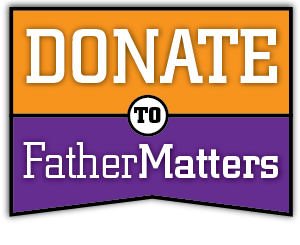Fathers Are Not Just For Playtime
Too Small to Fail
The role and meaning of fathers has changed over time. Fathers are taking care of children now more than ever before. In fact, the time that fathers spend weekly on child care has more than tripled since 1965. And the traditional term “father” more broadly now refers to trusted male figures (e.g. grandfathers, uncles, and mentors) who also play a vital role in the growth and development of a child. Just like mothers, fathers help very young children develop skills that benefit social, emotional and cognitive growth.
Starting from birth, fathers play a powerful role in helping their babies form close emotional bonds built on love and trust. Infants who are securely attached to their parents or caregivers are better able to self-regulate their emotions and more likely to develop positive relationships with their peers and other adults. There are simple and everyday actions that fathers can take—like reading or singing to a baby, stroking a baby’s forehead, or being responsive to a baby’s cries—to promote bonding and attachment.
A series of studies have emerged in recent years that outline the unique and positive role that fathers play in their children’s health and development. For example, children who have involved and nurturing fathers demonstrate higher language and cognitive abilities and fare better in school. They also show higher self-esteem and more sociable behavior towards their peers.
Dads tend to play with their children in different ways than moms, but both parents play important roles in their young children’s lives. And fathers—biological or not—are important contributors to their children’s development in many different ways.




